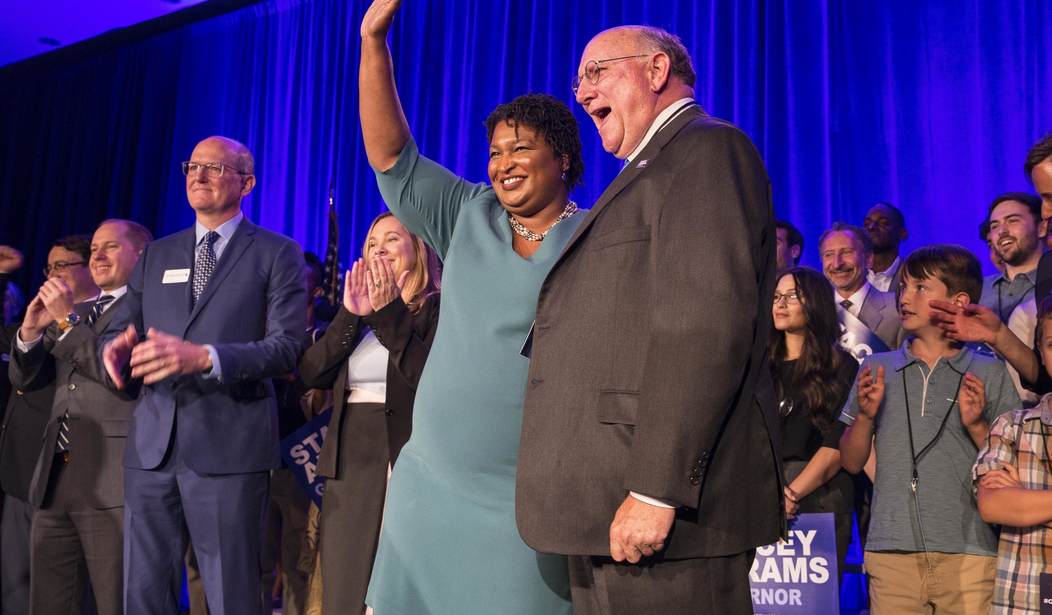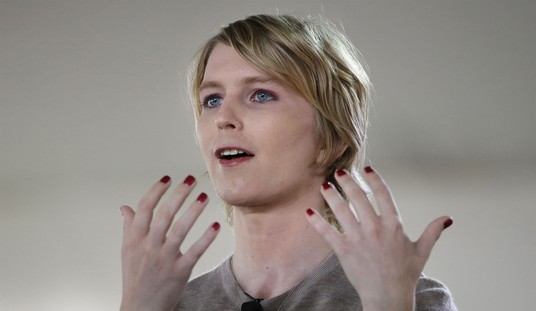With the coming of the autumn leaves — and the November general election — Stacey Abrams and Brian Kemp are moving away from the fringes of their respective parties, positioning themselves as more moderate than they might have seemed during their primary campaigns.
While many centrists applaud a move to what is seen as the mainstream, that is precisely what the Savannah Morning News was hoping wouldn’t happen.
“The 2018 gubernatorial election promises to alter Georgia’s persona. The nearly three-decade run of moderate governors will end,” predicted the Morning News. “The candidates, Democrat Stacey Abrams and Republican Brian Kemp, sit comfortably among the fringes of their respective parties, as evidenced by their words and actions in earning their party nominations.”
Again, as the Morning News opined, the contest between the candidates couldn’t be starker: “the African-American female who rose above her impoverished background to earn a law degree from Yale versus the white male entrepreneur who embraces his small town roots.”
But political consultants and state party bosses would love to blur those distinctions.
As of the latest WSBTV/Atlanta Journal-Constitution poll released Sept. 7, the Kemp-Abrams race was a dead heat. The survey showed 45.3 percent of voters supported Kemp, while 44.9 percent planned to vote for Abrams.
However, racial and gender divisions were intense and predictable. Two-thirds of white voters support Kemp. Eighty-five percent of black voters backed Abrams, who would become the first African-American governor in the nation. Men said they’d vote for Kemp by a 53-39 margin, while women went for Abrams 50-39.
So the general election for governor of Georgia comes down to not scaring off independent voters, while at the same time making sure those who backed you in September will be there for you in November.
Georgia Democrats say they’ve already built a solid foundation for Abrams’ campaign. The party created a field network of a dozen offices and claims to have contacted more than a million voters either face-to-face or with some kind of targeted message like direct mail or social media – and that was before the primary.
“She’s got to mobilize and activate voters who are registered who don’t often vote,” Trey Hood, a University of Georgia political scientist, told the Atlanta Journal-Constitution. “And that’s a pretty heavy lift. And the clock is ticking. Black turnout would have to be up from the typical midterm to give her a fighting chance.”
There’s a massive block of Democrats on the left-wing of Georgia’s political scale – close to 2 million out of 3 million registered Dems – who hardly ever vote in midterm elections. It’s those people Abrams needs if she is to win.
To reach those voters, Abrams is pushing a message that includes the left-wing hot-button issues of gun control, legalized abortion and tax policy. But she’s concentrating on what Abrams describes as mainstream issues that moderate voters will find appealing — building a more diverse economy, spending more state money on public schools, and expanding Medicaid.
To be sure, Brian Kemp is also worried about voter turnout. Kerwin Swint, a political scientist from Kennesaw State University, told the Atlanta Journal-Constitution Kemp is going to have to convince Trump Republicans and independents to vote for him — and many of those voters are also the people who traditionally stay home and skip midterm elections.
It’s those pro-Trump forces in Georgia’s rural areas who will give Kemp “some breathing room in metro Atlanta,” Swint maintained. The election “will hinge on just how large the Trump turnout will be.”
During the primary, Kemp told the GOP base he was, if nothing else, a gun-owning, “politically incorrect conservative.” He promised voters in a TV ad to personally drive around Georgia in his pickup truck arresting “criminal illegals.”
However, now focused on the November general election, Kemp is talking about “growing jobs, not government,” as the New York Times reported, and promising voters that his administration will be all about “rewarding legal, not illegal, behavior.”
Kemp also assured conservative GOP primary voters he would be a staunch advocate for their interpretation of religious liberty.
Yet, with an eye toward November, Kemp recently promised hotel and hospitality industry officials in Atlanta that he wouldn’t reopen the debate over religious freedom. Instead, Kemp vowed to veto any legislation that goes beyond the Religious Freedom & Restoration Act that President Clinton signed in 1993.
Kemp took the fence-straddling middle ground on the religious freedom issue to not scare moderates while keeping social conservatives happy. But LGBT-rights activists told Project Q Atlanta what was okay in 1993 should not be seen as an option in 2018.
“While the federal RFRA had strong support across the political spectrum in 1993, the past decade has seen the courts interpreting RFRA in ways that the original sponsors never intended,” Georgia Equality Executive Director Jeff Graham said. “This has led to the federal RFRA being used to justify the denial of health care, counseling, and other social services that are funded using public dollars.”
And there’s always the danger that conservatives will consider any flip or flop on religious freedom protections as treasonous.
“If Kemp moves too far to the center he risks alienating some of his strong supporters from the primary,” Charles Bullock, a professor of political science at the University of Georgia, stressed during an interview with the New York Times. “They may feel they’ve been betrayed, or lied to, once again.”
Or as Reco Edwards, a 31-year-old African-American, described Kemp’s new campaign strategy, “He’s now feeding us that typical politician B.S.”
But that doesn’t mean Abrams can count on conservatives staying home. She needs to motivate black voters and other minority voters to leave home and go to the polls.
Swint said Abrams could win, but to be victorious she needs to concentrate on generating a “huge blue wave in November.”
“She’s the kind of candidate that a lot of Democrats salivate over,” Swint said.
However, to attract Democrats, especially minorities, Swint said, Abrams could repel more moderates who lean conservative.
Andra Gillespie, an assistant professor of political science at Emory University, told the Los Angeles Times alienating moderate voters should be the last thing on Abrams’ mind.
“It doesn’t make sense to go after centrist voters who don’t exist anymore,” Gillespie said, “or to go after working-class voters who have been voting Republican since before 2016.”









Join the conversation as a VIP Member